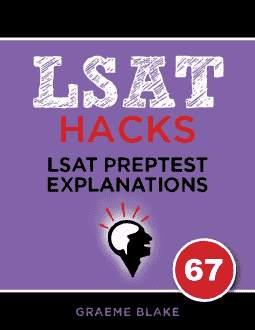QUESTION TEXT: The presence of bees is necessary for excellent…
QUESTION TYPE: Flawed Reasoning
CONCLUSION: Gardeners without a use for homegrown honey will tend to have gardens that don’t have excellent pollination.
REASONING: You need bees for excellent pollination. If you install a beehive, you will definitely have bees. But you probably won’t have a beehive unless you have a use for homegrown honey.
ANALYSIS: This is like saying that if you install an $8,000 water filtration system, you’ll definitely have drinking water. So if you don’t install such a system, you’ll die of thirst.
A beehive is sufficient for excellent pollination. It’s not necessary. I had plenty of bees and pollination in my backyard even though my parents didn’t establish a beehive.
___________
- There may be other advantages to beehives, but it simply isn’t economical unless the gardener needs honey.
- The sufficient-necessary mixup is about whether bees will be present, not whether pollination will occur. Bees are a necessary condition for pollination, that’s very clear.
- The argument doesn’t say that a lack of pollination will lead to a lack of fruits and vegetables. The conclusion is not about fruits and vegetables.
- CORRECT. Beehives are a sufficient condition for bees. But they aren’t necessary. There are lots of bees in areas without beekeepers.
- The argument didn’t say that beehives always lead to excellent pollination. The author just said that bees are a necessary condition for excellent pollination, and that beehives make sure that a garden will have bees.


Hi Graeme, I picked A as the answer, because I thought A identified an assumption which the argument required: “if beehives are not economical, then gardners will tend not to have it”, so I thought it could be the case that if beehives have other major benefits, then gardners would have reasons to have it despite beehives being not economical, which would then destroy this argument. I get that D is a good choice for an answer but I think A is just as fine as an answer as D. Could you explain why A is not a correct answer? Thank you.
Your reasoning for choosing A is understandable, but hopefully this clarifies why D is more accurate:
The argument suggests that without a need for honey, gardeners won’t keep beehives, leading to poor pollination. While A points out that beehives might have other advantages that the argument fails to consider, the stimulus already stated that beekeeping is only economical if the gardener has a use for honey. This means that other benefits would not change the gardener’s decision, or at least wouldn’t make it more economical for them to keep beehives.
The core flaw, however, is the assumption that without beehives, bees won’t be present, which leads to poor pollination. D directly addresses this by pointing out the possibility that bees could still be around even without beehives. This makes D the correct answer, as it targets the argument’s main weakness.
Hope that helps!
Hiya, can you explain why A isn’t correct? I understand that D is the right answer and I narrowed it down to A and D, and picked A.
As I wrote in the explanation, the argument clearly states that “Keeping bees is economical….only if the gardener has a use for homegrown honey”. Whatever other advantages beehives may have, this argument is saying they aren’t economical without honey.
Note: This is an old comment but I wanted to clarify the point.